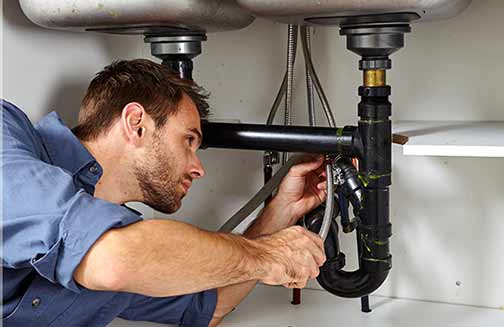
A good plumber is your most important ally for solving plumbing issues in your home. A good plumber plays the role of an educator by helping you learn the best ways to use and maintain your plumbing.
The plumber helps you save money by making plumbing issues less frequent. A good plumber also protects the value of your property by helping you stay up to code, says Out Fast Property Management.
But how do you find a professional plumber to do all these for you? The fact is there are lots of honest and competent plumbers to be found in your city. Most homeowners never see them because they need the proper process for finding a good plumber.
There are three things every homeowner should be aware of when looking for a competent plumber.
Start early
If you wait for a plumbing emergency before looking for a good plumber, you will likely end up with the wrong person. The fact that you are under pressure to fix an urgent problem places you at a disadvantage in the negotiations.
Don’t be cheap
The best plumbers will not be cheap, but that doesn’t mean they will be expensive. A good plumber will charge you a fair amount for a job. If you are unwilling to pay that fair amount, you will be more likely to attract quacks.
Establish a relationship
If the plumber is good, there will be a certain amount of demand for their services. Plumbers and all professionals prefer customers with an established relationship with them and pay the professional for their work.
Now that we have that out of the way, how do you actually go about finding that plumber?
8 tips for finding a good local plumber
Firstly, you do need a list of local plumbers. If there is a tradesperson you trust, ask them for recommendations. Your real estate agent and the local hardware store are also good sources of information. The local chapter of the professional plumber’s association and friends or family can help too. When you have a list of names, sort through it with these eight criteria.
Always choose local
Remember that the goal is to establish a long-term relationship. National chains are not as responsive as local companies, and it’s hard to build a relationship because they are always changing employees—your home’s plumbing benefits from being worked on by the same person over a long period.
Certifications and licenses
They must have the required licenses and be up to date. They should be willing to share information on their training, certifications, and awards. A plumber in good standing as a member of the local chapter of their professional body is an advantage.
Go for experience
Do not choose a new company unless an experienced plumber left their old company to set up shop independently. It is easier to establish the reputation of a plumber who has been in the business (in your location) for a long time. A new company may be a scammer looking for quick money.
Check their specialization
The plumber must have experience working with the kind of plumbing found in your building. Only hire a commercial plumber for a commercial building or vice versa. A plumber who is used to working on similar homes as your own will identify and solve problems quickly and cheaply.
Who are their employees?
Do they have mostly full-time or part-time employees? How many employees do they have, and what are the qualifications? How long have those employees been in their employment? The more qualified the employees are and the longer they have served, the better for you.
Ask for references
Are they willing to give you the names and contacts of people in the area they are currently working for or have done a job for in the last six months? Ensure those references are genuine customers by calling them to ask questions about the plumber.
Insurance and bonding
What kind of insurance policies do they have? Do they have worker’s compensation for employees who get injured on the job? Do they have liability coverage to shield you from lawsuits? Do they have property insurance if your property is damaged? Are they bonded?
Compare pricing and contracts
Check the plumber’s estimates against quotations by at least two other plumbers. When looking at estimates, you don’t want to focus solely on the amount. Check if the details of the parts they will use for the job are included. Look for transparency in pricing and check how much they charge for labor. You also want to see a sample of the contract the plumber will give you.
To conclude, pay attention to things like communication and timeliness. Also, listen to your gut feeling; your instincts often know things you don’t.

